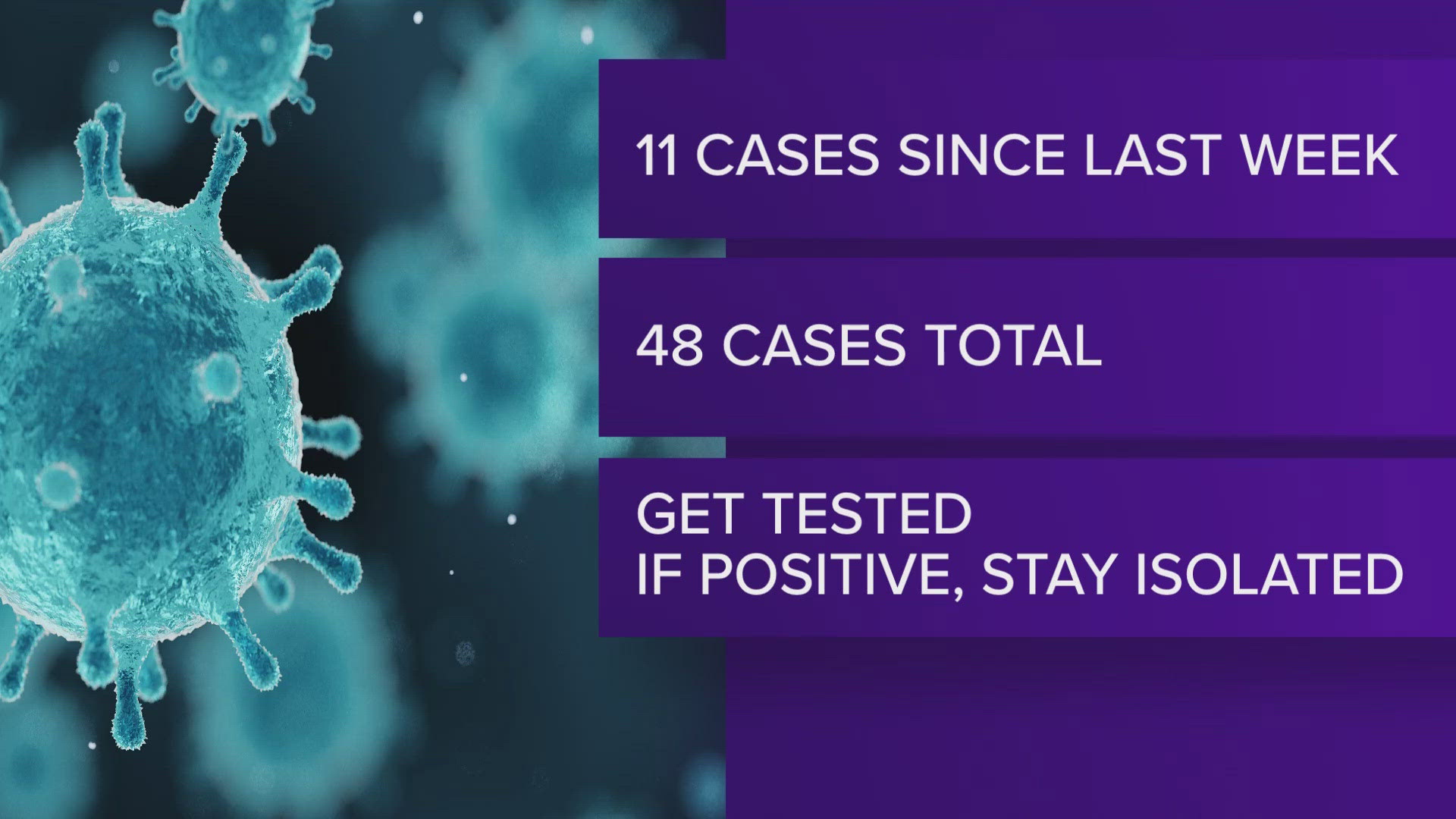WHITMAN COUNTY, Wash. — Several students at Washington State University (WSU) have been diagnosed with a confirmed case of pertussis, which is also known as whooping cough.
Whitman County Public Health (WCPH) and the Environmental Health & Safety Services at WSU have been investigating the cases since September and believe more cases are circulating in the area.
As of November 15, WCPH says there are 63 cases of whooping cough within the WSU student body and the broader Pullman-Moscow community. This is an 15-case increase since November 1.
WCPH said in a press release that "Infected individuals should stay home and avoid contact with others until they have completed at least 5 days of antibiotic treatment or stay home for 21 days after the onset of symptoms to avoid spreading the infection."
According to WCPH, pertussis starts with cold-like symptoms before developing into a bad cough. The coughing spells from pertussis can be severe, sometimes ending in gagging or vomiting.
Complications of pertussis include pneumonia, syncope (passing out), seizures, apnea (stopping breathing), and death. These severe complications are most common in infants.
The people at most risk of contracting pertussis are infants under 1 year old, pregnant women in their last trimester, healthcare workers, and anyone who works around infants like childcare workers, or members of households with infants.
WCPH says that vaccination is the most effective way to prevent pertussis.
But to limit the spread of the whooping cough, WCPH requests the public to do the following:
- Be aware of pertussis potentially circulating in the community.
- Talk to your healthcare provider if you have been exposed to pertussis.
- Anyone who is not up to date on their pertussis vaccination schedule should seek care with their healthcare provider to update their immunization status.
- Practice good hand, mouth, and nose hygiene.
- Cover your mouth and nose with a tissue when you cough or sneeze. Throw away used tissues right away and wash your hands.
- Wash your hands often with soap and water for at least 20 seconds. If soap and water are not available, use an alcohol-based hand sanitizer.
- Stay home when sick and limit your exposure to people who are sick.
In a press release, WCPH asserts that if pertussis is diagnosed, early treatment with antibiotics can reduce the spread of the disease to others. And if you know you've been exposed, there are preventative antibiotics that your doctor can prescribe.

